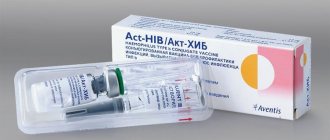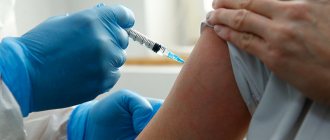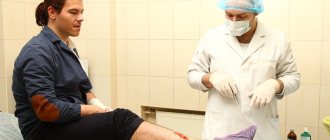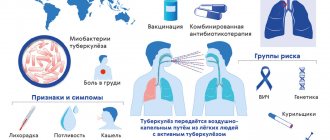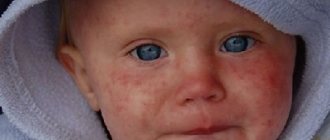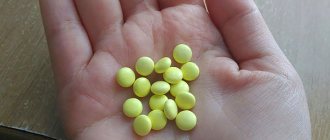Measles is a dangerous disease that has been familiar to the inhabitants of the planet for a long time. The disease is transmitted through the air and is extremely dangerous. Each year, more than 100,000 people die from measles and complications of the disease. The only effective way of protection is vaccination, which is given to children and adults. It reduces the risk of death from the disease and the risk of infection by 85%. Recently, due to the fact that cases of outbreaks of the disease have become more frequent in the CIS countries and Europe, many people have a question about in what cases adults are vaccinated against measles.
The danger of measles for adults
In adulthood, measles is very severe. The disease sharply reduces the patient's immunity, causing complications in the form of pneumonia, hepatitis, sinusitis, otitis, bronchitis, pyelonephritis, meningitis and meningoencephalitis, keratitis, eustachitis.
All complications can lead to unpredictable consequences, but the most dangerous are meningoencephalitis, which affects the nervous system, and encephalitis, which is fatal in a quarter of all cases of its occurrence.
Vaccination is the only way to protect yourself from measles and not become infected with it in childhood and adulthood.
Schedule of vaccinations that need to be done before one year: calendar and list with description
Vaccination, carried out in the first year of life, begins in the maternity hospital, on the first day after birth. To ensure effective immunization, some vaccinations are given multiple times at different ages. In addition to the legally approved mandatory vaccines, there are additional ones that can be administered to the child at the request of the parents: against chickenpox, hepatitis A and, during epidemics, against encephalitis and influenza.
Table of vaccinations given to children under one year old, by month
| Children's age | Vaccine |
| The first day after birth | Viral hepatitis B – primary |
| 3-7 days of life | BCG-M (tuberculosis) |
| First month | Viral hepatitis B – again |
| Second month | Viral hepatitis B – third time for children at risk Pneumococcal infection – primary |
| Third month | Whooping cough, tetanus, diphtheria and polio (inactivated vaccine) – primary |
| Fourth and fifth months | Whooping cough, tetanus, diphtheria and polio (inactivated vaccine) - repeated Pneumococcal infection - repeated |
| Sixth month | Whooping cough, tetanus, diphtheria and polio (“live” vaccine) – third time Viral hepatitis B – third time |
| Twelfth month | Mumps (“mumps”), measles, rubella – primary |
Description of the vaccination scheme
- Viral hepatitis B
The disease affects the liver, causing complications in the form of cirrhosis. The drug against it includes proteins of the hepatitis B virus. Procedures carried out in the first year of life protect the body from the disease for up to 8 years. For children who are at risk for this disease (mothers are carriers of the virus or have hepatitis B), an accelerated vaccination schedule is provided, which involves a fourth procedure. Possible reactions: increase in body temperature to 37.5℃, redness in the injection area.
- BCG-M (tuberculosis)
The disease affects the lungs and causes complications in the brain and bones. The drug to protect against it contains bovine tuberculosis bacteria (weakened, which do not cause disease in humans). A single procedure protects for up to 7 years. In case of weakened immunity (according to the Mantoux reaction), repeat vaccination is included in the schedule after a year. A delayed reaction may manifest itself as a lump at the injection site, leaving a small scar at the site.
- DTP (tetanus, whooping cough, diphtheria)
Diseases that have a very high mortality rate among newborns are dangerous due to the toxins produced by pathogens. The complex preparation contains a low concentration of tetanus and diphtheria toxins, as well as an inactive whooping cough bacillus. After the injection, local redness and thickening of the skin, as well as an increase in body temperature to 38℃, drowsiness or excessive excitability, and malaise are possible.
- Polio
Affects the central nervous system, gastrointestinal tract, endocrine system, is characterized by high mortality, and can lead to paralysis. Inactivated drugs against the disease contain only viral proteins, while “live” drugs contain a weakened virus. Immunity develops up to 10 years. There may be redness and thickening at the injection site. If the drug is given orally, there are almost no reactions, with the exception of allergies in the form of skin rashes.
- Rubella, measles, mumps (“mumps”)
The disease is dangerous due to its complications and severe course. Preventive drugs against them contain weakened pathogens (viruses) that cause a 100% immune response, but do not lead to infection of other people. Immunity develops up to 5 years. After the procedure, the following are possible: increased body temperature, enlarged lymph nodes, redness of the cheeks and eyes, nasal congestion.
- Pneumococcal infection
It is a complex of diseases that are caused by the bacterium Streptococcus pneumoniae. These include acute otitis media, pneumococcal pneumonia, purulent pneumococcal meningitis, arthritis, endocarditis, and pleurisy. Usually this infection acts as a complication of others. Previously, children were vaccinated against the listed diseases for a fee.
When and how to get vaccinated against measles
Adults are vaccinated against measles according to the schedule approved in a particular country. Up to the age of 35, every person is entitled to free vaccination, provided that he has not been sick and has never been vaccinated against measles. Also, regardless of age, free measles vaccination is mandatory for persons who have been in contact with infected people, but have not previously been sick and have not been vaccinated.
If a person received only one vaccination as a child, he is vaccinated in the same way as an adult who has never been vaccinated against this disease - twice with a three-month interval between administrations. The immunity obtained in this way is resistant to the virus for 12 years.
The measles vaccine is administered to adults under the skin or intramuscularly in the upper third of the shoulder. Due to the pronounced fat layer, the vaccine is not administered to the gluteal muscle, as well as to any other areas of the body prone to the formation of compactions.
How can I find out which vaccinations were done before?
Since 1993, information about vaccinations has been included in vaccination certificates. If you don’t have it at home or at your parents’ house, contact the archives:
- your school or other educational institution
- clinics where you were assigned as a child and adult
Consult your doctor if you are unable to recover your immunization records. When a person is vaccinated, some antibodies will remain in the blood. A blood test for their number will indicate the need for vaccination.
Measles vaccination rules
The vaccination scheme assumes that the first vaccination is given to a child aged one to one and a half years, but in countries with an increased threshold for morbidity, children can begin to be vaccinated from 6 months.
The second dose of the vaccine is administered to consolidate the result of the first, to develop additional immunity in case of insufficient formation and in the case when the first vaccination was missed for some reason.
The timing of measles vaccinations coincides with the same timing for rubella and mumps. That is why sometimes these vaccinations are carried out in a comprehensive manner, protecting children with one drug from three severe infections at once.
Why are measles, rubella and mumps dangerous?
First of all, the fact that an infected person can act as a source of spread of a viral infection and at the same time not know about the presence of the disease. The incubation period for measles, rubella and mumps lasts from 10 to 20 days. Symptoms of the disease appear after this time and persist for 1–2 weeks.
For 1 week after their disappearance, the person still continues to be a spreader of the virus.
Measles, against which children are vaccinated as part of the CCP, is considered one of the most contagious. The disease is transmitted through contact with a sick person in 95% of cases. Particularly severe variants of the course of the disease are accompanied by the development of encephalitis, hepatitis, and pneumonia in young patients. There are cases of death. Infection with this disease can occur both in utero and by airborne transmission. In the early stages of pregnancy, there is a risk of fetal death, development of dementia or mental retardation. In the later stages, there is a possibility of premature birth.
Mumps in 15% of cases of disease development leads to damage to the membranes of the brain and spinal cord. According to statistics, every 20,000 sick person experiences deafness (after suffering from labyrinthitis). In boys and men, this disease causes inflammation of the testicles and appendages. Representatives of the adult population have prostatitis. Occasionally, mumps is accompanied by the occurrence of complications in patients such as pancreatitis, nephritis, mastitis, etc.
Rubella detected in women in the first trimester of pregnancy is a medical indication for its termination. If this is not done, in 80% of cases the newborn will be diagnosed with heart defects, mental retardation, deafness or cataracts. A child is born with congenital rubella. For 6–30 months, he undergoes treatment, acting as a source of infection and infection of all people in his circle of contacts.
Effect of the vaccine
The measles vaccine creates immunity against this disease for 20 years. However, at the age of six, the need for revaccination arises, since some children turned out to be insensitive to the virus introduced at the age of one, some have weakened immunity against measles, therefore, for more reliable protection, children are vaccinated twice.
During the third vaccination, which usually occurs in adolescence at the age of 15-17, people most often receive a multicomponent vaccine, since on the eve of childbearing age, girls and boys need protection against rubella and mumps, and the anti-measles component simply enhances the already formed protection.
Measles vaccine
Children under 5 years of age require immunization to the greatest extent; it is at this time that the risk of complications and death is highest. The risk group includes children who do not get enough vitamin A from their diet and generally live in unfavorable conditions.
A choice of monovalent or polyvalent vaccines is used. The first contains only one component - against measles; the second, in addition to the anti-measles component, contains several additional ones.
Combination options:
- rubella;
- rubella and mumps;
- rubella, chicken pox and mumps
The effectiveness of all vaccinations is the same; the choice is determined only by convenience and the availability of vaccinations already given against all or some of the specified diseases. The vaccine consists of two parts - powder and solvent, which are mixed together. The vaccine is diluted immediately before the procedure, since after an hour at room temperature and after six hours in the refrigerator it loses its effectiveness.
The strain is grown on a culture of embryonic quail cells, after which it is weakened (attenuated). The vaccine is administered within 3 days of exposure to prevent infection. The vaccination has contraindications; you should consult your doctor.
Types of measles vaccines
There are several types of measles vaccines available today. All of them are divided into mono-vaccines, aimed at combating only measles, and combined vaccines, which help protect the body from other severe viruses at the same time.
Mono-vaccines registered and used in Russia include:
- Dry measles vaccine (Russia);
- Vaccine Ruvax (Aventis Pasteur).
Among the combined vaccines (multicomponent) vaccines are:
- Russian mumps-measles vaccine.
- Three-component American vaccine MMP II.
- Three-component Belgian vaccine Priorix.
Multicomponent vaccines that simultaneously protect against measles, mumps and rubella can only be purchased independently at vaccination centers or pharmacies. Russian anti-measles mono-vaccines are available in regular clinics.
It is important to remember that single-component vaccines are administered exclusively to the area of the shoulder or shoulder blade, while foreign multicomponent drugs can also be administered intramuscularly, according to the instructions.
Anyone can choose their own vaccines for themselves or their child. However, most often for the administration of multicomponent vaccines that are not supplied by the Ministry of Health, they are purchased independently.
Single vaccines (measles component only)
LCV (live measles vaccine)
The domestically produced live measles monovaccine is an effective means of protection against measles already on the 28th day after injection. Over the next 18 years, a person can be confident about his immunity against this infection.
Among the main contraindications for such a single vaccine, doctors name exacerbation of chronic diseases, acute viral and bacterial infections, cancer, HIV, and allergic reactions to the components of the drug. for injection. Also, LCV should not be used together with immunoglobulin and serums.
Ruvax (Aventis Pasteur, France)
The French-made monovaccine Ruvax helps prevent measles infection 2 weeks after vaccination. The effect of vaccination lasts for 20 years. Doctors recommend Ruvax for vaccination of newborns, in conditions of increased epidemiological conditions, or in other cases of vaccination under the age of 1 year. Contraindications for the Ruvax vaccination are the same as for GIB; in addition, Ruvax cannot be used by those undergoing radiation or corticosteroid therapy, or using cytostatics.
Combination vaccines
MMR II (measles, rubella, mumps)
The American vaccine against three serious infections, MMP-II, has proven itself very well in modern immunological practice. It can be administered simultaneously with DTP, DPT, polio or chickenpox vaccinations, provided that each injection is given to a different area of the body.
Among the main contraindications for MMP-II injection, doctors identify pregnancy, HIV, exacerbation of various chronic diseases, allergies to neomycin and chicken egg white.
Priorix (measles, rubella, mumps)
The second popular triple threat vaccine is Priorix, produced by the same pharmaceutical company that makes the famous DTP, Infanrix. The degree of purification of this company's vaccines is very high, due to which the reaction to vaccination is less pronounced.
Contraindications for the administration of Priorix are exactly the same as for MMP-II, in addition, this vaccine cannot be administered for neomycin contact dermatitis and acute phases of stomach diseases.
Mumps-measles vaccine (Russia)
The two-component Russian mumps-measles vaccine is administered to people, according to the approved vaccination schedule, at 1 and 6 years of age, and then during revaccinations of adults.
Doctors include the following main contraindications for the use of such a two-component vaccine:
- periods of pregnancy and lactation;
- anaphylactic shock, allergies;
- oncological diseases;
- severe reactions and complications from previous use of this vaccine;
- various diseases in the acute stage.
Measles-rubella vaccine
The Russian two-component measles and rubella vaccine is completely similar to the mumps-measles vaccine. It is important to remember that when using two-component vaccines, it is also necessary to purchase a single vaccine with the missing component of protection for full immunity against common viral infections.
Many experts consider prevention to be the best way to treat any disease. Sometimes it is precisely this wall that protects children from many infections. Vaccination against measles is the only way to guarantee a person’s protection against this dangerous disease. Thanks to immunization, the morbidity rate in children and adults was reduced to 85%.
Measles, all about the disease
Measles has become a fairly rare disease in children over one year of age due to regular immunization. This infection is dangerous for humans.
Let us note the most important features of this disease:
- When infected, the child's temperature rises significantly. It can reach more than 40 degrees C.
- The disease is accompanied by symptoms similar to a cold (runny nose, dry cough, sneezing, sore throat). Specific manifestations are also observed in children, which include: hoarseness, photophobia, swelling of the eyelids, rashes on the body.
- Infection of nearby people can occur up to 4 days of illness.
- The development of the disease causes a sharp decrease in immunity in children. A number of bacterial complications can occur during infection.
- After the mother suffers the disease, the child’s body will acquire immunity to the virus within 3 months, no more.
- Measles is difficult for young children (under 5 years of age). One of the dangerous complications is death.
In 2011, the disease killed more than 100,000 children worldwide who were not vaccinated against measles.
The spread of the virus occurs through airborne droplets.
A person with measles is contagious even during the incubation period. The causative agent of the infection in question is unstable in the external environment; it dies after exposure to physical and mechanical factors.
The importance of measles vaccination, vaccination schedule
Experts consider vaccination to be the only effective method of preventing infectious diseases. It does not need to be done if a person has contraindications.
The first measles vaccine should be given between 12 and 15 months of age. Vaccination should be done at an early age because adults are more susceptible to vaccination than children.
The measles vaccine is sometimes combined with many other vaccines. Vaccinations against measles, mumps, and rubella are often given at the same time.
According to the plan, 2 measles vaccinations should be given. We indicated the timing of the first vaccination above, and the second should be performed at the age of 6 years (provided there are no contraindications). Typically, the time for revaccination occurs during the Mantoux test. Experts recommend conducting a test before measles vaccination, or after some time has passed (after 1.5 months). At the same time, these vaccinations are given only if there are emergency indications in a child over one year old.
The routine vaccine is administered to children twice (12–15 months, 6 years). In rare cases, you need to deviate from this vaccination schedule:
- If one of the family members is infected, everyone under the age of 40 must be vaccinated. The exception is children under one year old.
- When a child is born from a mother in whose blood no antibodies to the virus are detected, the baby is vaccinated in the first 8 months of life. Then the child is vaccinated according to plan (14 – 15 months, 6 years).
Parents, and even children themselves, are interested in the question: where do they get vaccinated against measles? 0.5 ml. The drug is administered to a child or an adult in the following areas:
- under the shoulder blade;
- outer shoulder area.
Preparing for the injection
No special preparation is required for vaccination:
— The measles vaccination can only be given to healthy children (adults). There should be no signs of ARVI.
— Before administering the drug, it is recommended to undergo a full examination by a doctor and take tests.
There are also rules for behavior after vaccination. They are as follows:
— While taking a shower, you should not rub the area where the drug was injected.
- Avoid visiting crowded places for three days.
— New products should not be introduced into the child’s menu.
Measles vaccine for adults
If an adult decides to get vaccinated, he is recommended to undergo tests to detect antibodies to the infection. A person can have a latent form of measles without even knowing it. In this case, experts say that vaccination is not necessary.
Once the height of the epidemic has been confirmed, vaccinations cannot be done. If a person does not have a first vaccination, he should be vaccinated before traveling to a dangerous region (no later than 2 weeks before departure). The most cases of infection with the virus have been recorded in France, Germany, Great Britain, Romania, Italy, Denmark, Uzbekistan, and Spain.
The measles vaccine is given only for a certain period. Repeated administration of the drug is necessary after 3–5 years. The time for repeated vaccination in adults depends on the characteristics of the body and the vaccination schedule in the country.
Adults are vaccinated against measles up to 35 years of age, twice with a 3-month break between vaccinations. Revaccination is not needed. The body will remain immune to infection for more than 12 years. For adults, the drug is injected into the shoulder (upper third).
This infectious disease is dangerous due to complications.
Among the most severe complications we list:
- encephalitis;
- pneumonia;
- otitis;
- meningoencephalitis;
- pyelonephritis;
- sinusitis;
- hepatitis;
- meningitis;
- Eustachitis.
What vaccines are used?
The measles vaccine contains live or weakened viruses. In this state, they are unable to cause illness in the child, but only help to develop the body’s immunity to infection.
Features of the measles vaccine:
- Thermal lability. The vaccine loses its properties when exposed to conditions with an uncomfortable temperature. Its storage should be carried out at temperatures up to 40C, not higher. High/low temperatures provoke rapid destruction of the drug.
- If any unused vaccine remains, it should be destroyed.
- The drug should be administered with caution to people allergic to the antibiotic or egg white.
For preventive purposes, single vaccines and combination vaccines can be used (they also protect against rubella and mumps).
Vaccines used:
- "Ruwax." Made in France.
- LCV (monovaccine).
- Mumps-measles vaccine (Russia).
- Priorix (UK).
- MMR (combined measles, rubella, mumps). Made in USA.
How to choose a measles vaccine?
The issue is quite complex; to solve it, consultation with a specialist is necessary. The doctor will be able to choose the best option by assessing the tolerability of a particular drug.
Even after vaccination, a child can get measles. The disease can develop when a child’s immunity has sharply decreased after a single vaccination. But if a child over one year of age becomes infected, the infection will be much easier to bear. Vaccination in this case helps to stop the development of the disease, prevent its severe course, and reduce the risk of complications. Reaction to vaccination
Immunoprophylaxis is carried out using a weak live vaccine. It is very important to know whether and what consequences can occur after measles vaccination.
The measles vaccine can provoke 2 types of reactions:
- general (redness of the pharynx, mild cough, flushing, runny nose, conjunctivitis);
- local (redness in the area of vaccine administration, swelling). These manifestations disappear after a few days.
In some cases, the temperature may rise (after 6 days). The child may experience nosebleeds, decreased appetite, a measles-like rash, and malaise.
The reaction to the measles vaccine varies depending on the severity of the symptoms:
Weak. The temperature increase is only 10C. The symptoms of intoxication that we discussed above are not observed. Average. The temperature rises within 37.6 - 38.50C. There are mild symptoms of intoxication. Strong. The child has a very high temperature, weakness (for a short time), rash, cough, redness of the throat.
The above symptoms may occur when a single vaccine is administered (immunity against measles only). If combined vaccinations are carried out (rubella, mumps), additional symptoms may appear (inflammation of the salivary glands, joint pain).
Possible complications
Parents are concerned about how the measles vaccine is tolerated. Can post-vaccination complications occur? In medical practice, cases of severe complications have been recorded (very few). Usually the cause of complications lies in:
- violation of vaccination technique;
- failure to comply with contraindications;
- individual intolerance to the components of the drug;
- poor quality vaccine.
The following side effects may occur after vaccination:
- convulsive reaction. Convulsions occur at elevated temperatures. According to experts, this complication is not severe;
- toxic reaction. It appears only 6–11 days after vaccination. Characteristic: intoxication, high fever, measles-like rash, sore throat. These signs are observed for 5 days, no more;
- post-vaccination encephalitis. Nausea, agitation, headache, confusion, and convulsions may occur;
- rash. It may indicate the development of an allergic reaction. And joint pain and Quincke's edema may also occur;
- bacterial complications;
- exacerbation of allergic diseases.
Contraindications to vaccination for children and adults
Vaccination against measles will help avoid the dangerous consequences of the disease. But there are contraindications. In some cases, a child (adult) cannot be vaccinated against measles either at 12 months or again at the age of 6 years:
- pregnancy;
- primary immunodeficiency;
- the presence of severe complications from a previous vaccination;
- presence of allergies to aminoglycosides, chicken protein;
- neoplasm (malignant);
- vaccination is postponed for 3 months in case of administration of immunoglobulin and blood products;
- acquired immunodeficiency (AIDS). Vaccination is contraindicated in the development of its severe form. If there are no clinical manifestations of HIV infection, the administration of a live vaccine is allowed.
Documentation Features
All vaccinations are carried out only with the consent of the parents. Vaccinations performed must be documented. Measles vaccination also falls under this rule.
How does the vaccination process take place?
Initially, the pediatrician examines the child. Before the drug is administered, parents are given a form to sign indicating that they consent to this medical procedure.
If parents are against vaccination, they are required to issue a written refusal to the procedure. The signature of one of them is enough. The refusal must be drawn up in two copies. The doctor pastes the first copy into the child’s card, copy No. 2 should be attached to the local journal “On immunization of the population.” Parents file an annual waiver of vaccination.
Preventing measles
Measles vaccination is considered the only preventive measure.
The weakened virus is not dangerous to health; it will help the body develop immunity to the disease.
Sometimes emergency prevention is needed. It consists of vaccination within 2–3 days after a child (over 6 months of age) comes into contact with a sick person.
For young children under one year old (aged 3–6 months), emergency prevention involves the administration of human immunoglobulin. It contains protective antibodies from the serum of donors and people who have had measles. After 2–3 months, active immunization can be done.
Source: https://pro-privivku.ru/
Read also:
- WHO. Measles: Know the risks, check your status, protect yourself
- Vaccination against measles, rubella, chickenpox
- What is measles?
- 8 Key Facts About Measles That All Responsible Parents Should Know
- Causes of measles outbreak 2021: why is the virus difficult to stop?
- What you need to know about measles
- VIDEO about measles
- Attention parents: Preventing measles
General rules for parents
On the eve of any proposed vaccination, the child must be protected from third-party contacts in order to avoid contracting any infections. In addition, it is not recommended to overcool the child, expose the child to sunlight, or overheat or acclimatize before vaccinations. The immune system reacts very sharply to any stress, which is all of the above impacts, and vaccination is also a stress factor for the immune system. When stress reactions are combined, antibody formation may malfunction and the development of the desired immunity may be disrupted.
Vaccination of children according to the vaccination calendar
In order to avoid all sorts of complications, pathology of the nervous system, as well as other severe consequences of measles, all children must be vaccinated against measles, according to the vaccination calendar in force in the area. At the moment, the minimum age of a child for measles vaccination is 9 months, since until this moment the baby must be protected by maternal antibodies. And the newborn’s immunity is weak enough to survive vaccination and form the necessary antibodies. Even at the age of 9 months, with the introduction of the measles vaccine, immunity occurs in only 90% of children. When such a vaccine is administered at 12 months, immunity is formed in almost all vaccinated people.
Thus, the optimal time for the first vaccination is considered to be 1 year of age. But in regions with a severe epidemiological situation, it is recommended to start vaccinating children earlier, which is where the 9-month figure came from. In this case, repeated vaccination is carried out at 15-18 months.
In countries with a calm epidemiological situation, it is customary to vaccinate children for the first time at 1 year of age, and subsequently revaccinate at 6 years of age. This vaccination tactic has eradicated measles outbreaks in many regions.
Preparation for MMR vaccination, carrying out
At the time of vaccination, the child must be absolutely healthy, without signs of acute respiratory viral infections, intestinal disorders, or allergies. If a child has had ARVI or another infection, at least 4 weeks must pass after recovery. 3 days before vaccination, you should avoid visiting crowded places and avoid contact with sick people. Source: N.V. Yuminova, E.O. Kontarova, N.V. Balaev, S.V. Artyushenko, N.A. Kontarov, N.V. Rossoshanskaya, E.S. Sidorenko, R.R. Gafarov, V.V. Zverev Vaccinal prevention of measles, mumps and rubella: objectives, problems and realities // Epidemiology and Vaccinal Prevention, 2011, No. 4(59), pp. 40-44
Before the vaccination is administered, an examination is carried out by a pediatrician. If in doubt, blood and urine tests may be ordered.
The doctor will tell you where the vaccination is given: before three years of age it is an intramuscular injection in the buttock, after three years - in the shoulder area.
Measles vaccination and pregnancy
During pregnancy, measles infection is very dangerous; it can lead to miscarriage and all sorts of fetal malformations. Because the measles vaccine contains live viruses, it is contraindicated during pregnancy. A woman needs to take care of her own safety before planning a pregnancy and undergo the necessary vaccinations.
Allergy to measles vaccine
Most modern vaccines are prepared using egg whites. If an allergy to egg white occurs at different periods of a child’s life, manifesting itself in the form of angioedema, urticaria, anaphylactic shock, the child should not be given the measles vaccine.
To find out whether there is a risk of such an allergic reaction, you must:
- soak a clean finger in raw egg white;
- Apply this finger to the inner surface of the baby’s lip;
- If there is slight swelling of the lip over the next 5 minutes, it may be concluded that vaccination with standard vaccines is impossible.
If the possibility of developing an allergic reaction is detected, it is necessary for the doctor to select a replacement for the standard vaccine and vaccinate with another means.
Contraindications
The vaccination has contraindications, in which case it will have to be completely abandoned or postponed for some time. These include:
- malignant blood diseases;
- HIV;
- presence of neoplasms;
- pregnancy;
- active tuberculosis;
- acute allergy to chicken eggs and aminoglycosides.
The possibility of vaccination in case of contraindications is discussed individually with a doctor. If there is a strong reaction when the vaccine is first administered, you should understand the reason before injecting again. You will have to postpone routine vaccination if you have a viral infection or ARVI.
Contraindications to vaccination
Contraindications for vaccination in adults include acute respiratory viral infections or exacerbation of chronic diseases. With these symptoms, vaccination is postponed, on average, for a month.
In adults, there are also absolute contraindications for vaccination, among which doctors cite allergies to bird eggs, allergic reactions to antibiotics, previous vaccinations, pregnancy and breastfeeding.
In children, contraindications for injections against viral infections are:
- any disease in the acute stage;
- primary immunodeficiency;
- AIDS;
- use of blood products and immunoglobulin the day before;
- complications associated with previous vaccination;
- intolerance to aminoglycosides, protein;
- oncological diseases.
Consequences of vaccination
After vaccination, a child or adult may experience some symptoms of measles:
- low body temperature;
- mild rash that goes away quickly;
- slight painful sensation and thickening at the injection site
Symptoms are rare. In the first 5-15 days, only 15 out of 100 children experience a slight rise in temperature after vaccination for measles, rubella and mumps. This immune response is normal and does not require special action.
The appearance of a rash after vaccination is also considered a normal reaction. A person at this moment is not contagious and is not a carrier of infection. The presence of rashes may indicate the formation of an immune response.
Catarrhal symptoms are another type of reaction to the vaccine and include cough, joint pain, and enlarged lymph nodes. Aching joints as a symptom are more typical for older people. The symptoms may be unpleasant, but they do not pose any threat to health or life and do not require additional treatment.
If the nurse administers the drug intradermally, a painful infiltrate will form. However, even with proper insertion, a slight lump may be felt under the skin.
It is important to distinguish the consequences of measles vaccination from complications that require action on the part of the person who received the vaccine and the child’s parents. For example, if the temperature rises to 38-38.5 degrees, it is necessary to take antipyretic drugs - suppositories, tablets, syrups. One of the post-vaccination complications is allergic reactions to antibiotics or egg whites included in the vaccine. A NEARMEDIC clinic specialist will advise you in detail on the consequences and measures that need to be taken in a particular case.
Possible reactions to vaccination
In its normal course, the measles vaccine causes in adults:
- slight redness at the injection site;
- temperature up to 37.5 degrees;
- catarrhal phenomena;
- joint pain.
But it is possible to develop very dangerous side reactions - allergic shock, urticaria, Quincke's edema. Also, in particularly rare and severe cases, adults may develop encephalitis, pneumonia, meningitis, and myocarditis. To avoid such consequences, vaccination should be carried out while being completely healthy, and on the eve of the event, you need to consult an immunologist and use antihistamines.
Reaction to vaccination in children
Among the common childhood reactions to measles vaccination, doctors call:
- swelling and redness of the injection site;
- some catarrhal phenomena;
- the appearance of a skin rash;
- poor appetite;
- fever during the first 6 days after vaccination.
In this case, all of the above symptoms can manifest themselves to varying degrees. The temperature may rise slightly, or may reach 39-40 degrees, other symptoms may or may not be present, but they should all gradually subside a week after vaccination.
Adverse reactions after vaccination
Complications expressed by various symptoms and side effects from measles vaccines are not common. Sometimes the temperature may increase as a side effect, and sometimes conjunctivitis or rashes may occur. All symptoms are typical for a period of up to 10 days after administration of the drug. This course of the post-vaccination period is considered natural.
Possible complications from vaccination include:
- all kinds of allergic reactions that can be prevented by taking antihistamines before and after vaccination;
- febrile convulsions in children due to very high fever, which can also be stopped by taking paracetamol when the temperature begins to rise;
- In one case in a million, severe damage to the nervous system occurs.
It is important to understand that all complications that develop as a result of vaccination are much weaker than those that may arise during transmission of the disease.
Post-vaccination reactions
All measles vaccines contain live, weakened (attenuated) measles viruses. Measles vaccine is weakly reactogenic. Vaccination against measles, as a rule, is not accompanied by any clinical manifestations. Most children do not experience any post-vaccination reactions. Among the undesirable post-vaccination events, an increase in body temperature (usually no higher than 37-380 C) and mild malaise for 2-3 days may be noted. In children prone to allergic reactions, a measles-like rash may appear (from 4 to 15 days after vaccination). Serious complications are extremely rare.
Is it possible to get sick after vaccination?
Basically, although the vaccine contains live viruses, they are so weakened that they are not capable of causing a full-blown disease. Often, vaccination can cause some kind of measles in a very weak form; such reactions occur easily and go away on their own, a week after the injection. A person in this state is not contagious to others.
However, sometimes a vaccine does not cause the formation of immunity against the disease, and a person can become fully ill with measles while being vaccinated. This phenomenon in medicine is called failure of vaccination immunity and can be observed in a small percentage of all vaccinated people.
Which vaccine is better
With different compositions of domestic and foreign vaccines, they all demonstrate high effectiveness in combating measles. There are 2 significant differences between these vaccinations. Firstly, domestic vaccines are prepared on the basis of quail eggs, while foreign analogues are made on the basis of chicken egg white. If you are allergic to any of these components, you should choose a different vaccine.
Best materials of the month
- Coronaviruses: SARS-CoV-2 (COVID-19)
- Antibiotics for the prevention and treatment of COVID-19: how effective are they?
- The most common "office" diseases
- Does vodka kill coronavirus?
- How to stay alive on our roads?
Secondly, imported vaccines have a multicomponent composition and protect against three infectious diseases at once - measles, mumps and rubella, which is very convenient in terms of vaccination. When choosing domestic vaccines, vaccinations will need to be done 2-3 times in each period of life. But at a local clinic you can only get a domestic vaccine for free, so you need to approach vaccination consciously, weighing the pros and cons.
How is the vaccination done?
Single vaccines (measles only) or complex vaccines (Priorix, MMP II for measles, mumps and rubella) are used. The latter are especially convenient for childhood immunization, so as not to have to do multiple injections. The algorithm for measles vaccination of children includes 2 stages: 1-1.5 years and 6 years.
Injections are made in the place with the greatest muscle volume for deep injection. For young children, the vaccine is given in the thigh; sometimes the gluteal muscle is recommended for injection in children.
For adult children and others, the vaccine is given in the shoulder. The gluteal muscle is not suitable due to the large subcutaneous layer of fat in this place.
After vaccination, it is not recommended to eat allergenic foods and wash the injection site.
How many measles vaccinations are needed?
The number of measles vaccinations over a lifetime is determined by the age at which a person first received the vaccine. When vaccination begins at 9 months, a person will be forced to undergo 4-5 vaccine injections in life: at 9 months, at 15 months, at 6 years, at 16 years and at 30. With the initial vaccination per year, the number of subsequent injections is reduced by 1.
If there is no vaccination at the age of one, you should try to get the first vaccination as early as possible - at 2-4 years, and the next one should be done according to plan at the age of six on the eve of school. During the primary vaccination of a person over 6 years of age, he is administered a double dose of the drug with an interval of 1-6 months.
Vaccine effectiveness
In 2014, about 85% of all children worldwide received one dose of measles vaccine within the first year of life (up from 73% in 2000). Accelerated immunization efforts have had a significant impact on reducing measles deaths. In 2000-2014 Measles vaccination prevented an estimated 17.1 million deaths. Global measles deaths have dropped by 75%, making the disease's vaccine one of the most beneficial public health advances.
Vaccination also effectively prevents the risk of dangerous complications. For example, a complication such as encephalitis occurs in 1 case out of a thousand sick people and 1 case out of 100,000 vaccinated people. The risk of developing a serious complication in the case of measles vaccination is 100 times less than with a full-fledged disease. The measles vaccination provides a person with immunity for a fairly long period of time - on average 20-25 years.
Today, research has revealed active immunity against measles in people vaccinated up to 36 years ago. Why give a booster vaccination against measles to a 6-year-old child, when only 5 years have passed since the first vaccination?
This need is due to the fact that approximately 15% of those vaccinated do not develop immunity 1 year after the first dose, and children remain unprotected. Therefore, the second vaccination is aimed at ensuring that children who have not developed immunity at all (or have a weakened one) can receive reliable protection against infection before starting school.


